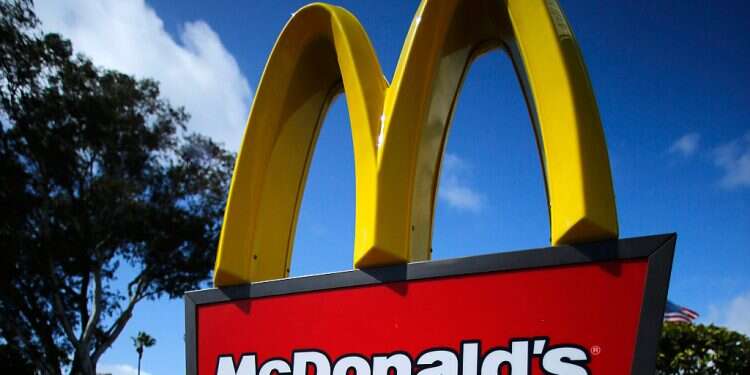As part of its vision to reduce plastics, McDonald's largest independent franchise has announced that it will be replacing its standard plastic food trays with a more sustainable, recycled plastic produced by Israeli cleantech startup UBQ Materials.
Follow Israel Hayom on Facebook and Twitter
Since launching its plastics reduction program in 2018, Arcos Dorados, which operates McDonald's restaurants in Latin America and the Caribbean, has removed over 1,300 tons of single-use plastic from its outlets.

UBQ Materials converts household waste into a climate-positive, biobased, thermoplastic. In contrast to standard recycling procedures, UBQ's technology takes all types of landfill- waste – food leftovers, paper, cardboard, and mixed plastics – and converts it all into a single composite thermoplastic material compatible with industry machinery and manufacturing standards.
In the first phase of the partnership, 30 restaurants operated by McDonald's Brazil replaced 7,200 serving trays with new ones from UBQ. The plan is to extend the model to all McDonald's outlets in Brazil. Another 11,000 trays are already in production, and the new trays will keep over 1,200 kg of waste out of landfills.
According to UBQ, every ton of its bio-based thermoplastic keeps nearly 12 tons of carbon dioxide equivalent prevents nearly 12 tons of carbon dioxide equivalent out of the environment. According to Quantis, a firm that assesses environmental impact, this metric makes UBQ the most climate-positive thermoplastic on the market.
The new trays are produced by the Brazilian company Semaza, whose plant is in Santana de Parnaíba, in the Greater São Paulo region. The introduction of trays made with UBQ™ will be gradually extended to the other units in the chain, while old tray models withdrawn from the restaurants will be used in the circular economy projects promoted by Arcos Dorados.
"We as a company are fully committed to the environment and are doing everything possible to reduce the impact of our operation by means of our Recipe for the Future platform. The partnership with UBQ is yet another step towards introducing more and more innovative solutions to improve the world around us, and we are proud to take this first step, supporting a technology that will transform the way society recycles its organic waste," said Gabriel Serber, director of sustainable development and social impact at Arcos Dorados.
Executive chairman of UBQ Materials Albert Douer said that "UBQ has the potential to revolutionize the way we view waste. The market at large is demanding sustainable solutions and the fast-food industry is no exception. UBQ enables manufacturers to create products that positively impact our world, without compromising on profitability – the solution is as simple as implementation."
Subscribe to Israel Hayom's daily newsletter and never miss our top stories!




